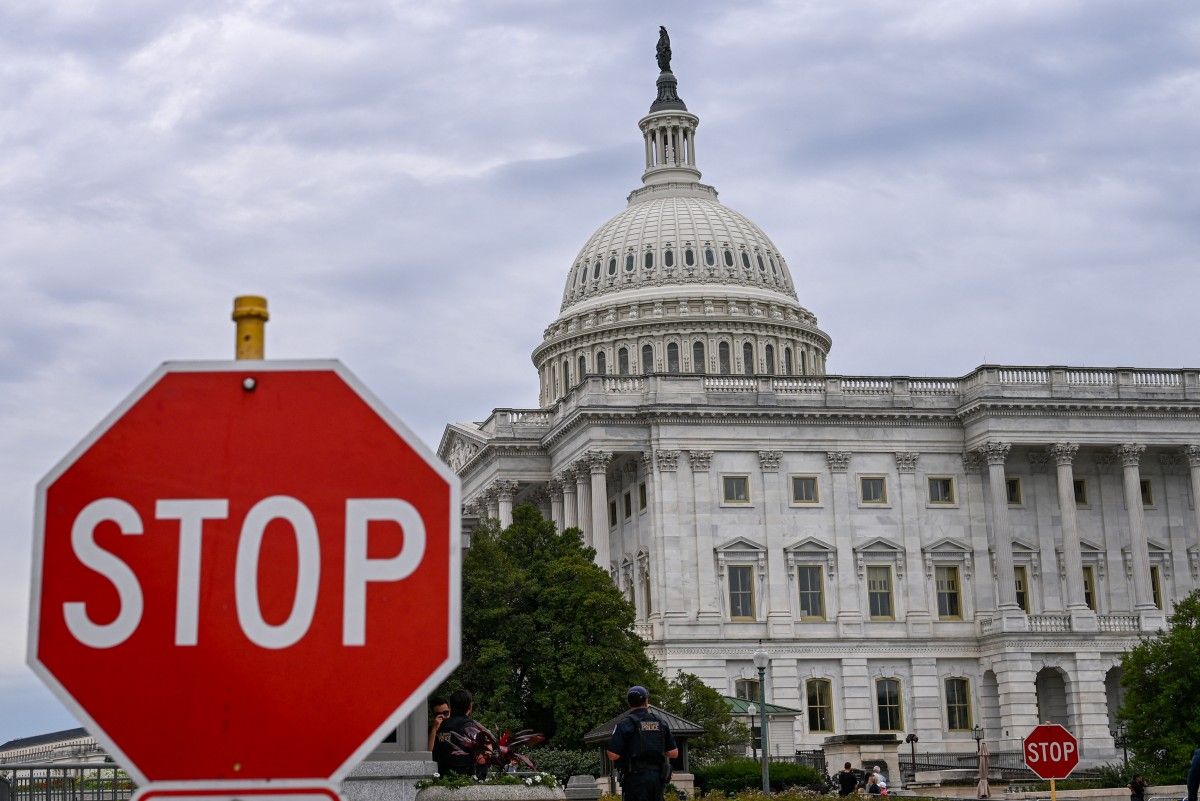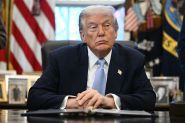- Home
- Middle East
- US Govt Shutdown Begins after Congress Fails to Reach Deal

©ALEX WROBLEWSKI / AFP
The US government began shutting down Wednesday after lawmakers and President Donald Trump failed to break a budget impasse during acrimonious talks that hinged on Democratic demands for health care funding.
Republicans and Democrats immediately blamed each other for the deadlock that will impact hundreds of thousands of government workers and the millions of Americans who use the services they provide.
The shutdown, which will stop work at multiple federal departments and agencies, comes as deep partisan divisions in Washington have raised fears over what will be the length and consequences of the halt.
Trump threatened to punish Democrats and their voters by targeting progressive priorities and forcing mass public sector job cuts during the first stoppage since the one during his previous term.
"So we'd be laying off a lot of people that are going to be very affected. And they're Democrats, they're going to be Democrats," Trump told reporters in the Oval Office.
He said a "lot of good can come down from shutdowns," and suggested he would use the pause to "get rid of a lot of things we didn't want, and they'd be Democrat things."
Government operations began grinding to a halt at 12:01 am (0401 GMT) Wednesday, after a frenetic but ultimately failed bid in the Senate to rubber-stamp a short-term funding resolution already approved by the House of Representatives.
Top Senate Democrat Chuck Schumer posted a video on social media that showed a clock ticking down to midnight over an image of the US Capitol building.
"The Repblican shutdown has just begun because Republicans wouldn't protect America's health care," he said. "We are going to keep fighting for the American people."
The shutdown will not affect vital functions like the Postal Service, the military and welfare programs like Social Security and food stamps.
But up to 750,000 workers could be sent home each day and would not be paid until the shutdown was over, according to the Congressional Budget Office.
This is the first shutdown since the longest one in US history -- lasting 35 days -- almost seven years ago during Trump's previous term.
Hopes of a compromise had been hanging by a thread since Monday, when a last-gasp meeting at the White House yielded no progress.
The gridlocked Congress regularly runs into deadlines to agree on spending plans, and the negotiations are invariably fraught. But Congress usually avoids them ending in shutdowns.
Democrats, in the minority in both chambers of Congress, have been seeking to flex their rare leverage over the federal government eight months into Trump's second presidency that has seen entire government agencies dismantled.
How long?
Trump's threat of new job cuts added to anxieties in the federal workforce sparked by large-scale firings orchestrated by tycoon Elon Musk's Department of Government Efficiency earlier this year.
Republican House Speaker Mike Johnson wrote on X after the shutdown began to ask "How long will Chuck Schumer let this pain go on — for his own selfish reasons?"
"Results: Moms and kids now lose WIC nutrition. Veterans lose health care and suicide prevention programs. FEMA has shortfalls during hurricane season. Soldiers and TSA agents go UNPAID," Johnson wrote.
Former Democratic presidential hopeful Kamala Harris wrote on X that the Republicans were in charge of the White House and both houses of Congress.
"This is their shutdown," ex-vice president Harris wrote.
The 100-member Senate requires government funding bills to receive 60 votes -- seven more than the Republicans control.
Republicans had proposed to extend current funding until late November, pending negotiations on a longer-term spending plan.
But Democrats wanted to see hundreds of billions of dollars in health care spending restored, particularly in the Obamacare health insurance program for low-income households, which the Trump administration is likely to eliminate.
Almost all Senate Democrats voted against a House-passed, seven-week stop-gap funding measure hours ahead of the midnight deadline.
It remains unclear how long the shutdown will last.
The federal government has shuttered 21 times since 1976, when Congress enacted the modern-day budget process.
The longest began on December 22, 2018 when Democrats and Trump found themselves at an impasse over $5.7 billion the president was demanding for a border wall during his first term.
With AFP
Read more



Comments